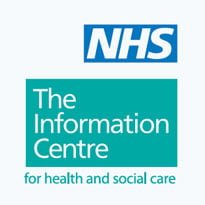The Learning Disabilities Observatory will be the first customer of the General Practice Extraction Service.
The data extraction for the LDO will take place in March next year as part of the user testing phase of the new service.
Dave Roberts, head of primary care strategy at the NHS Information Centre, told eHealth Insider that this extraction will also test the “opt-in” functionality for GPs being developed by system suppliers.
This will allow GPs to set preferences and accept or deny individual GPES requests. Each supplier has been given templates to make this process as uniform as possible across all practices.
Roberts said the IC has been working with the LDO for two years after it was set up in response to an enquiry into a number of deaths of people with learning disabilities.
The observatory was tasked with collecting and analysing data on how people with learning disabilities are treated in the NHS, but could not find a good source of this data.
“We have worked with them to improve the way data is collected and now we’re able to extract that using GPES and the LDO will have much a richer data set,” he explained.
GPES will deliver an extract of non-identifiable, aggregate patient data showing how many people on GPs’ lists have a learning disability, how old they are, what sex, their BMI and if they suffer from conditions such as epilepsy or diabetes.
LDO co-director Professor Gyles Glover, said: “GPES will give us the opportunity to use the huge wealth of information currently sitting in the electronic filing cabinets of every GP practice in the country to help deliver real improvements in care for people with learning disabilities.”
From April 2013, GPES will extract the data needed to support payments to GPs under the Quality and Outcomes Framework while the Calculating Quality Reporting Service will calculate practices’ achievements against the QOF.
The Information Centre has also signed a £850,000 contract with PRIMIS at the University of Nottingham for its MiQuest service to do local extractions.
Roberts said the IC is trying to get ownership of some of the components of MiQuest over the next six months so that by April it will have more control of the software.
This will give the centre options for either taking the service forward or replacing it.
A contract award notice says it is intended that GPES will replace MiQuest once it is fully operational in 2013-14.
Another role for the IC involves collecting data on the number of practices offering patient access to records.
Roberts said the centre is working with systems suppliers on this and plans to give the information to the Department of Health in a few weeks.
The data will show which practices are offering transactional services to patients such as online booking and which provide full records access. Also, which suppliers offer what functionality.
The next phase of the project will reveal how many patients are using the various services.
Roberts said he expects the new data will be published on the IC website.

